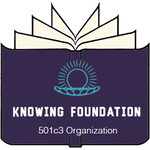Saturday, September 30, 2017
Re: Title for HGVS talk
HGVS presentation - 17th October, Orlando, Fl
My talk will focus on prioritizing genetic variants associated with
cancer, to identify key variants driving cancer progression. First, I
will look at the overall functional impact of the variants in cancer
genomes, ranking them in terms of impact, for both coding and
non-coding regions. For the coding analysis, we use the ALoFT and
frustration tools, and for the noncoding analysis, we use FunSeq.
Then, I will look at the recurrence of variants within cancer cohorts.
Here we develop two approaches: one parametric (LARVA) and the other
non-parametric (MOAT). Finally, I will put these methods together
through application to kidney and prostate cancers.
http://events.hgvs.org/
9:00 - 9:40
10/17
==
i0hgvs
★ Knowing Foundation would like your help with Native American Cultural Literacy Program
 |
|
| You received this message because someone provided your email address to FundRazr. If you didn't authorize the use of your email address in FundRazr, please contact us at support@fundrazr.com. We'll get things sorted out pronto. Don't want to receive emails like this? Change your contact preferences or unsubscribe from all emails. ConnectionPoint Systems Inc., 200-171 Water Street, Vancouver, BC Canada V6B 1A7 |
Monday, September 18, 2017
Abstract for talk at UMass [i0umass17]
Tackling core issues related to regulation & also mining the "data
exhaust" of this activity
In this seminar, I will discuss issues in transcriptome analysis. I
will first talk about core aspects - how we analyze the activity
patterns of genes in model organisms and humans. I will focus on how
we cluster these patterns together, finding conserved modules across
species, and then, how we analyze the regulation of these modules,
whether their dynamics is determined internally or involves an
external control. Finally, I will talk about how one can decompose
this regulation into simple logic gates, such as those seen in
electronic circuits (e.g., and/or), and how one finds a different type
of gate in the natural functioning of cells than in the dis-regulated
activity evident in cancer. In the second half of the talk, I will
look at some of the data exhaust from transcriptome analysis. That is,
how one can find additional things from this data than what is necessarily
intended. I will focus on genomic privacy: How looking at
the quantifications of expression levels can potentially reveal
something about the subjects studied, and how one can take steps to
protect patient anonymity.
http://papers.gersteinlab.org/papers/dreiss
http://papers.gersteinlab.org/papers/orthoclust
http://papers.gersteinlab.org/papers/privaseq
http://papers.gersteinlab.org/papers/loregic

